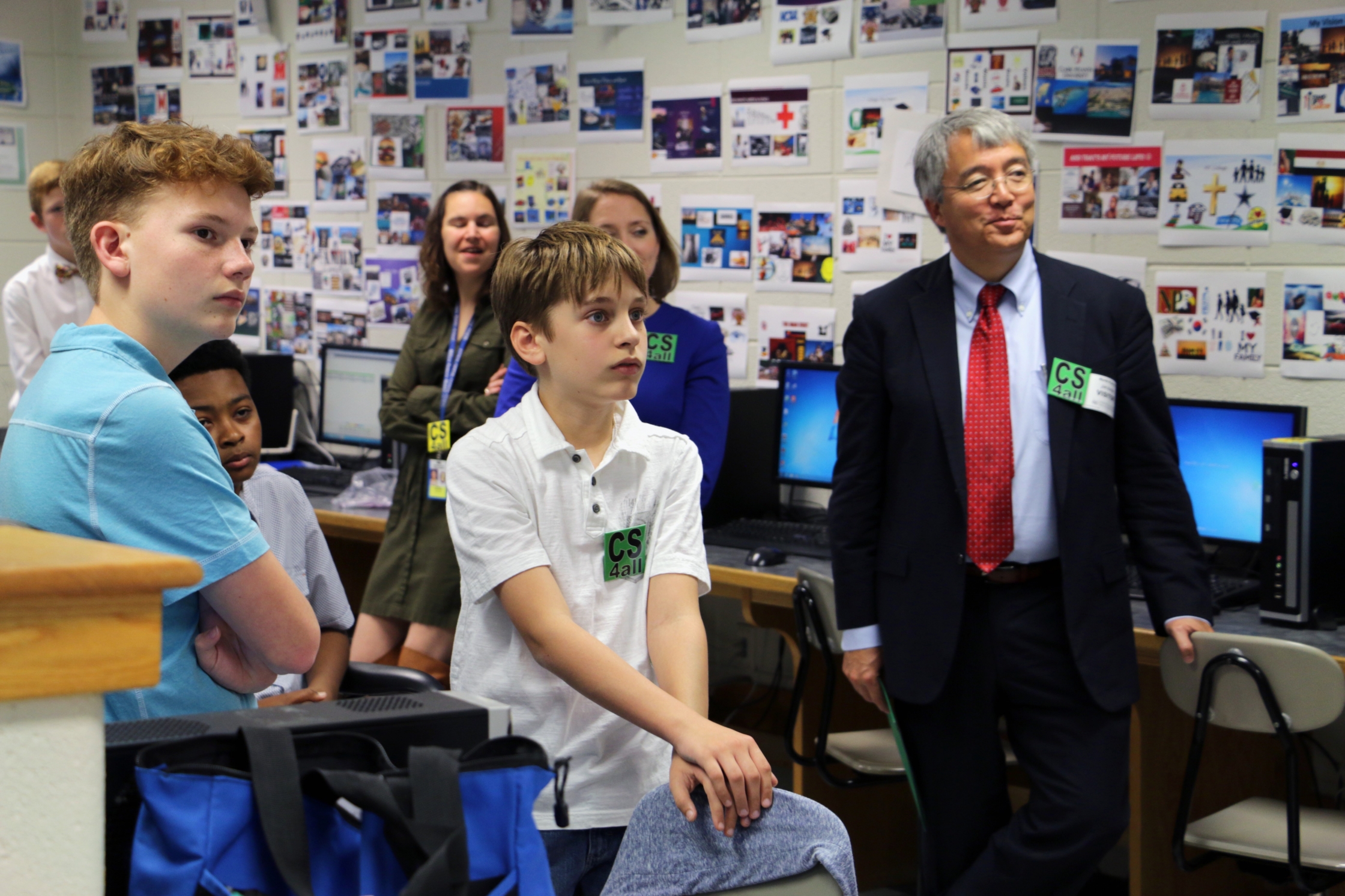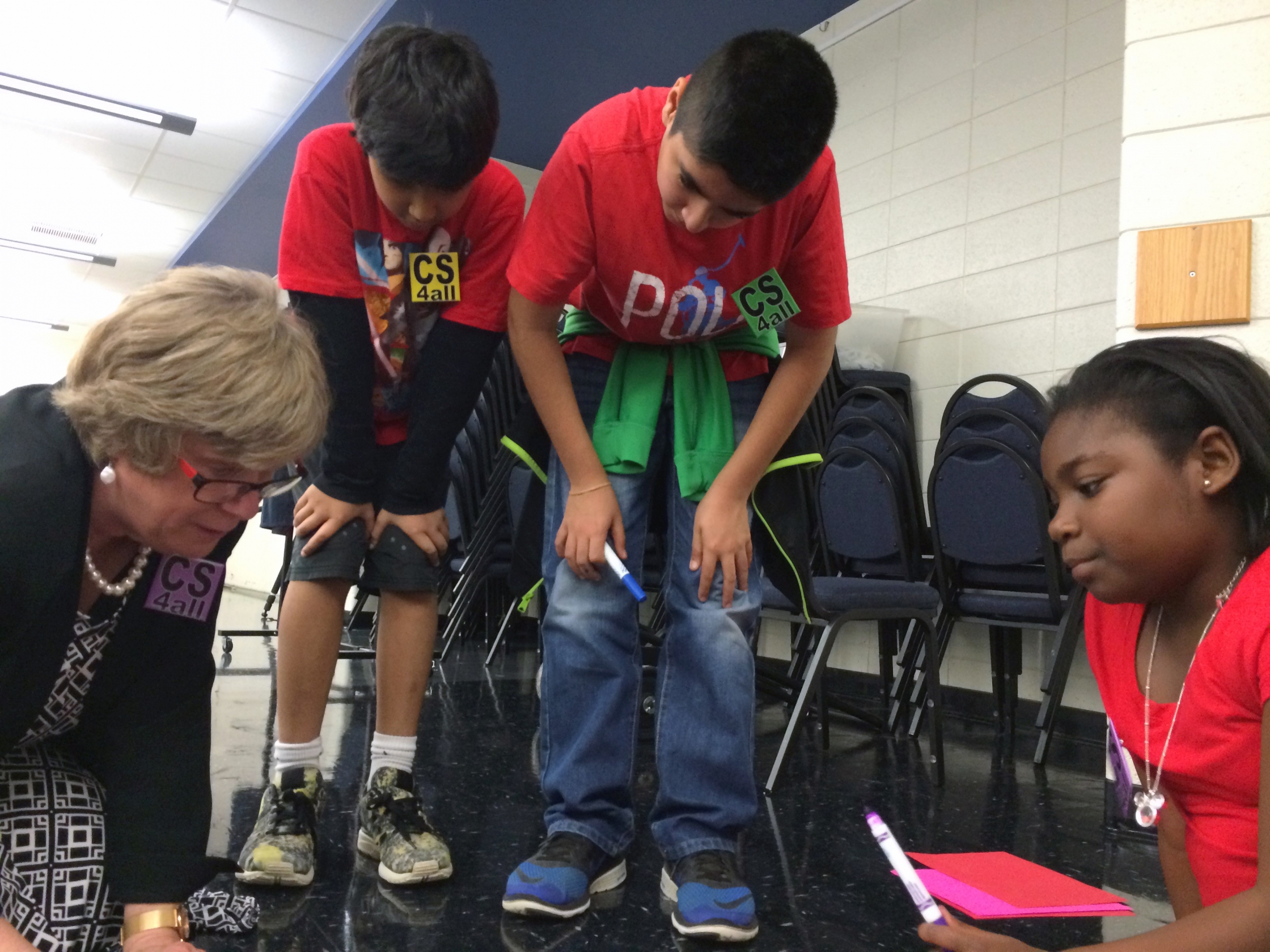
As the national and global economies continue to rapidly shift and evolve, it is critical that young people today are prepared with the skills they will need to succeed in the workforce of tomorrow. Increasingly, governors and local officials, parents and teachers, school administrators and industry leaders, and many others are recognizing that computer science (CS) is a critical subject that students need to learn to thrive in an increasingly technological and data-driven world.
That’s why, as part of his proposed FY 2017 Budget, President Obama announced a new Computer Science for All initiative to give all students across the country the chance to learn CS in school, with a focus on CS as an active and applied field of STEM learning.
Whereas in the past, CS education may have just meant learning how to use a word-processing program or write a program in Java, CS education today is much more about teaching and learning computational thinking—a way of solving problems by breaking them down into sub-problems, developing computational solutions to those sub-problems, and communicating the results. CS education is about empowering people to be engaged citizens in the 21st century, and to adapt to and succeed in a changing world.
The CS for All initiative has already generated impressive impacts. Thousands of new CS teachers have participated in innovative CS professional development opportunities desiged and piloted by federally-funded researchers, and a thriving community of practice is growing around CS education. More researchers are engaged in studying CS education, and an ecosystem for cultivating increased access to CS education is taking shape.
Notably, the National Science Foundation (NSF) is supporting these efforts with its commitment of $120 million over five years to:
- ramp up the fundamental research and development that builds the knowledge base for CS education
- design and pilot scalable and sustainable professional development programs,
- create instructional materials and teacher resources, and
- support evaluation of the effectiveness of all of these activities.
Federal officials are also engaging with practitioners in order to better respond to on-the-ground needs and priorities in CS education. Last Thursday, for instance, leaders from NSF, the Department of Education and the White House Office of Science and Technology Policy visited a high school in the Charles County (Maryland) Public School District to learn more about their CS for All work and the role that the Federal government is playing in it.

Several years ago, Charles County committed to bringing CS to all K-12 students in its school district. As part of this effort, Charles County uses a number of resources created by Federally funded researchers. At the middle-school level, these include materials from Project GUTS (Growing Up Thinking Scientifically)—a program that allows middle-school students to answer questions through scientific inquiry and design solutions to problems—and Bootstrap—a curriculum that helps kids learn algebra as they program their own video games. Both programs teach science and mathematics along with computational thinking.
At the high-school level, Charles County students are taking the Exploring Computer Science (ECS) course, developed with NSF funding by Jane Margolis, a recent White House Champion of Change for Computer Science, and designed to inspire students from diverse backgrounds to study computer science and use their knowledge to help society.

And this fall, students in Charles County and across the nation will, for the first time, have the opportunity to take one of several new AP Computer Science Principles (CSP) courses developed with NSF support. These courses go beyond coding—they promote hands-on, project-based learning, and show students how CS can be useful in a wide range of fields.
Ultimately, CS education isn’t important only because it helps create the next generation of technological innovators and IT workers. Having a foundation of CS knowledge will equip students with the ability to explore other interests, and help all students succeed in any careers they choose. We look forward to seeing where the students in Charles County—and at all schools supporting CS for All—take this knowledge in the future.
For potential funding opportunities, check out NSF’s Dear Colleague Letter on CS for All here, participate in a vibrant online conversation at #CSforAll, and stay up to date on the CS for All initiative here.
Joan Ferrini-Mundy is Assistant Director of the National Science Foundation (NSF) for Education and Human Resources.
Jim Kurose is Assistant Director of the National Science Foundation (NSF) for Computer and Information Science and Engineering.
Kumar Garg is Assistant Director for Learning and Innovation.

